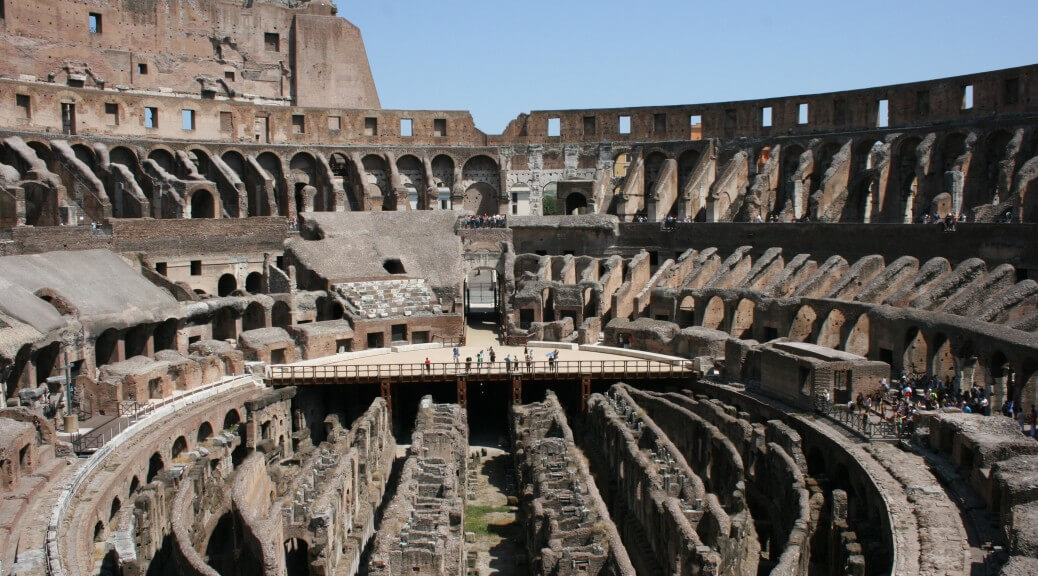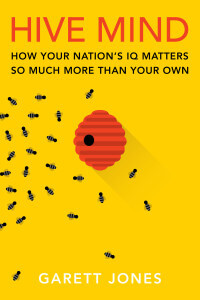
Ancient Rome went from a thriving civilization to a dystopia before its eventual collapse. My guests today explain how that happened. Lawrence Reed and Marc Hyden co-authored “The Slow-Motion Financial Suicide of the Roman Empire.” Lawrence is the President of the Foundation for Economic Education, and Marc is a political activist and amateur Roman historian.
Many accounts of the fall of Rome focus on military problems and the barbarian invasions. However, the Empire was in decline long before the barbarians showed up to finish it off. The barbarians didn’t kill the Roman Empire; the Roman Empire committed suicide. There were six important factors in the Empire’s decline:
1. Political violence became normalized.
The populist reformer Tiberius Gracchus redistributed public farmland to Roman citizens. His reforms angered the Senate, and his political enemies clubbed him to death in 133 BCE. This was the first open political assassination in Rome in nearly four centuries, but it wouldn’t be the last. Suddenly, it became acceptable for powerful Romans to kill their political enemies, and this would spell doom for Rome’s republican government.
2. The Roman state gave ever-increasing amounts of free food and entertainment to the masses.
Despite having killed Tiberius Gracchus, the senate did not repeal his reforms in an effort to assuage the masses. Tiberius’ brother Gaius Gracchus would take his brother’s position and further his reforms, also introducing a system of subsidized grain for the masses. When Gaius also succumbed to political violence, most of his reforms died with him, but not the grain dole. The dole was retained and expanded, proving a huge burden on the Roman state. Successive generations of Roman leaders would buy political popularity with panem et circenses (bread and circuses). The Roman people came to value the dole over all other values. When the emperor Caligula was assassinated, there was a brief opportunity to restore the Republic, but the people preferred the rule of strong men who could provide them with ever more panem et circenses.
3. Roman armies became personally loyal to their generals rather than being loyal to the Roman state or the people.
In the early Roman Republic, the two elected consuls would raise forces from the eligible land-holding citizenry in times of crisis. These soldiers would return to their ordinary lives upon the completion of the war. This would change with the reforms implemented by Gaius Marius in 107 BCE. Marius expanded military eligibility to the landless masses and granted farmland to his veterans. He also set a precedent for much longer military campaigns (consulships had been ordinarily limited to one year). These changes made the soldiers personally loyal to their generals rather than to the Senate and People of Rome, and the generals would use their military strength to intimidate the Senate. Eventually they supplanted the Senate altogether, turning Rome into an empire with a series of strong men leading it as emperors.
However, the soldiers’ loyalty only lasted as long as the wealth and land kept coming in increasing amounts, as future emperors would discover while wrestling with the Empire’s deteriorating finances.
4. They debased the currency.
The silver denarius was introduced by Augustus with a silver content of about 95 per cent. However, successive emperors, facing ever-increasing demands on the treasury, both from the people who demanded panem et circenses and from the military who demanded ever-more land and money for their loyalty, needed whatever revenue they could get. When taxes would not suffice, emperors would melt down old coins and mint new ones with reduced silver content. During Trajan’s rule, the denarius was about 85 per cent silver. By Marcus Aurelius’ reign, that was down to about 75 per cent. Septimius Severus dropped it to 60 per cent, and his son Caracalla reduced it further to only 50 per cent.
Eventually this would spiral out of control into hyperinflation; emperors couldn’t debase the currency fast enough to keep up with skyrocketing prices. By 268 CE, the denarius was just a bronze coin with a bit of silver brushed on its surface; the silver content was less than one per cent. Nor did they understand the connection between rising prices and currency debasements, which led to…
5. They instituted Draconian price controls.
Rather than halting the debasement of the denarius, the Romans instituted (predictably) disastrous price controls. Dicoletian issued his Edict on Maximum Prices in 301 CE. Diocletian set one price for the whole of the empire, from modern-day Iraq in the east to Britain in the west. In regions where the costs of goods was significantly higher than the legal limit, markets dried up, riots broke out, and many people were put to death for selling at too high a price. The law was so disastrous that it was eventually dropped.
6. They instituted onerous taxes.
Monetary reforms under Diocletian and Constantine switched the empire largely to a gold standard, which was an improvement over the hyperinflationary denarius. However, the benefits of this gold currency were not felt by those outside of the military and the bureaucracy; most people had to scramble to get enough gold to pay their taxes. People who couldn’t pay were sold into slavery.
When the barbarian invasions came in the fifth century, the people welcomed them as liberators, freeing them from the yoke of the Roman tax collectors.
[Note: A phone rings in the background of the recording at 10:20. Don’t be alarmed! Your phone isn’t ringing.]
Subscribe to Economics Detective Radio on iTunes or Stitcher.
The post Rome’s Economic Suicide with Lawrence Reed and Marc Hyden appeared first on The Economics Detective.


